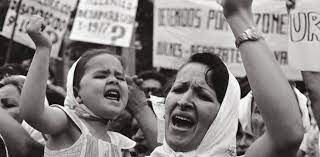Buenos Aires, generations of social actors compared. Between history and historiography
Keywords:
Argentina, generations, social movements, memory, rightsAbstract
Contemporary Argentina represents a dynamic laboratory of new forms of social and political citizenship. This article aims to provide a survey of the current debate on the new generations of human rights activists in the country through key texts from a multidisciplinary perspective (history, sociology of memory and literature). It is particularly focused on the case study of HIJOS, associations that gathers sons and daughters of the disappeared, exiled or detained after the last, harsh military dictatorship (1976-83), and also the association of the perpetrators’ sons and daughters. As indirect witnesses of one of the darkest periods of national history, in some cases they succeeded to enter institutional politics during either the Nestor (2003-2007) or the Cristina Kirchner presidencies (2007-2015), representing a clear demand for a generational change along the controversial process of transition to democracy. Finally, the article provides some insights on the meaning acquired in the public debate by specific ‘irruptions of memory’ of the dictatorial past that remind us about the wounds of recent history.

Downloads
Published
How to Cite
Issue
Section
License
Copyright (c) 2023 Elephant & Castle

This work is licensed under a Creative Commons Attribution 4.0 International License.





